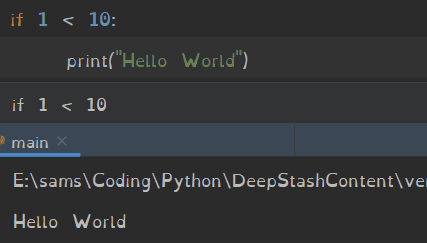The Basics (if Else Statements)
if else statements are also very important. To use a if else statement use this function if score == 4:
print(“your score is good”)
else:
print(“ your score is excellent”)
Anything after the else or if statement on the next should be indented to be apart of the statement(s). Your statement can equal a number, text, of a Boolean.
To replace the double equals sign
== Exactly equal
!= Not equal
> Greater than
< Less than
>= Greater than equal to
1
1 read
CURATED FROM
IDEAS CURATED BY
Remember even I cover Python 3.10 all version of Python are case-sensitive so type the functions word for word. If you don’t understand something in this tutorial search it up on the web. Comment and like. Follow for more coding tips and tricks!
“
Similar ideas to The Basics (if Else Statements)
Learning Python: IF statements
As you can see in the image, we are working with conditional if statements. This is used to find out if something is True or False. As you can see i used '
Read & Learn
20x Faster
without
deepstash
with
deepstash
with
deepstash
Personalized microlearning
—
100+ Learning Journeys
—
Access to 200,000+ ideas
—
Access to the mobile app
—
Unlimited idea saving
—
—
Unlimited history
—
—
Unlimited listening to ideas
—
—
Downloading & offline access
—
—
Supercharge your mind with one idea per day
Enter your email and spend 1 minute every day to learn something new.
I agree to receive email updates

